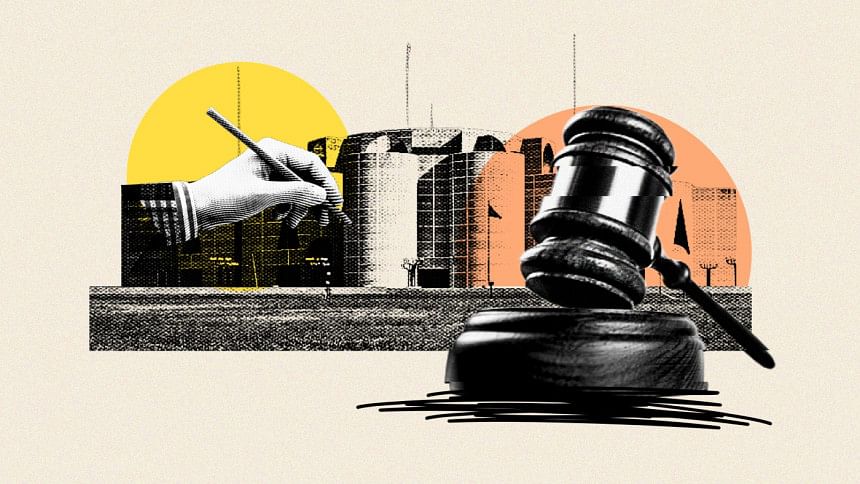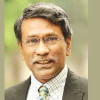Futility of restoring the non-party caretaker government

Since the interim government under Prof Muhammad Yunus came to power, intellectuals have been writing and speaking about how the interim government can be legitimised under the current constitutional system of Bangladesh. Some have even argued that removing the non-party caretaker government (NPCG) from the constitution was unconstitutional as it affected democracy and the people's right to a fair election. Learned lawyers have even filed petitions to restore the NPCG system in the constitution. I would argue that restoring the removed provisions of the constitution would be futile, and over-reliance on the system of the past would lessen the chances of achieving the reform people desire.
To plan for a better future for Bangladesh, we must first acknowledge that the Bangladesh Constitution has failed to maintain a robust democratic system. Under the 1972 constitution, Bangladesh has continuously struggled with peaceful transitions of governmental power. The struggle did not end after the introduction of the NPCG system. In its 53 years of existence, the people of Bangladesh had to shed their blood and sacrifice valuable lives multiple times for changing political regimes. In a constitutional system, if the transition of power frequently causes loss of lives, the system must be flawed, if not a complete failure. However, it would be unfair to blame the constitution solely for Bangladesh's misfortunes. Our constitution is not a divine book containing ultimate wisdom, but an artifact weaved from political decisions and compromises. It has been amended by democratically elected parliamentarians and autocratic regimes alike, bending the constitution to meet their political agendas respectively. Sticking to a failed system or bringing back another is neither necessary nor wise.
We recognise the constitution as having more democratic and legal legitimacy than ordinary legislation because we consider constituent power to be greater than legislative power. Constitutional supremacy does not stem from a provision of the constitution that declares itself to be supreme. Instead, its supremacy comes from the people's decision to treat it as such. The theory of constituent power that was presupposed by the makers of the constitution of the United States of America notes that "people's will [is] both anterior and superior to every instance of positive law, not excluding any constitutional text" (Richard S Kay, 2011). The same principle that gave the people of Bangladesh the power to adopt our previous constitutional structure allows us to create a new one. The people's willingness to breach the curfew order and take to the streets to overthrow the previous regime can be taken as people's will to reject the previous system. However, we do not have to rely on the implied will of the people. One way to know if the people want a new constitutional system is by holding a referendum. Thus, we can expand our visions of reform beyond the boundaries of the existing or past systems.
We must also acknowledge that justifying the interim government's legitimacy through the constitution in its current form is unnecessary. It is already settled that the constitution, in its current form, does not recognise an interim government and it is not the same as the NPGC. The NPGC system had a fixed tenure, and its primary mandate was to ensure a free and fair national election. The current interim government's primary mandate is not only to hold an election but also to bring significant reforms. The NPGC was designed to be headed by the most recently retired chief justice of Bangladesh unless she/he refused. The design of the interim government is quite different from the design of the NPCG. If the interim government had the same design as the NPGC system, the people may not have accepted it as openly as they have. Thus, even if the NPCG system is brought back into the constitution, it would not automatically give legitimacy to the interim government. It is also important to note that the interim government's legitimacy will derive from the legacy it leaves behind and its ability to reform Bangladesh and restore democracy, in spite of any justification it has in its favour.
We must appreciate that the current time and circumstances have presented us with an opportunity not enjoyed by most generations. Time has presented us with the chance to reconstitute ourselves. The cost of lives is too great a price to ensure the proper transition of governmental power. It is not feasible or reasonable to ask the people of Bangladesh to pay this price every 10 years or so. An ideal constitutional system should outlive at least its framers' generation. If we fail to create a system that is peacefully carried on by future generations, we will have failed to "constitute" anything. The spirit of the constitution is more important than the text. As long as we can retain this spirit, we do not need to carry the mistakes of our ancestors forward.
Nafiz Ahmed teaches jurisprudence at North South University. He can be reached at: [email protected]
Views expressed in this article are the author's own.
Follow The Daily Star Opinion on Facebook for the latest opinions, commentaries and analyses by experts and professionals. To contribute your article or letter to The Daily Star Opinion, see our guidelines for submission.

 For all latest news, follow The Daily Star's Google News channel.
For all latest news, follow The Daily Star's Google News channel. 










Comments